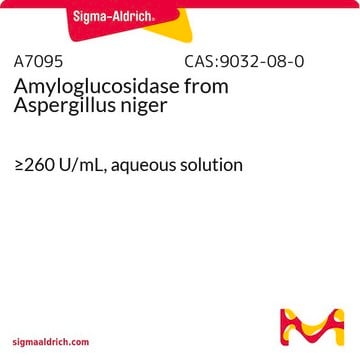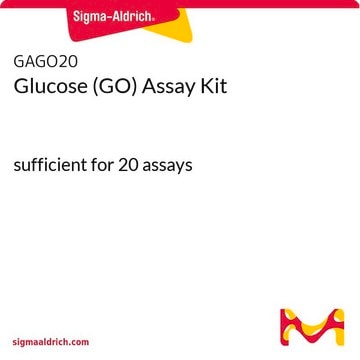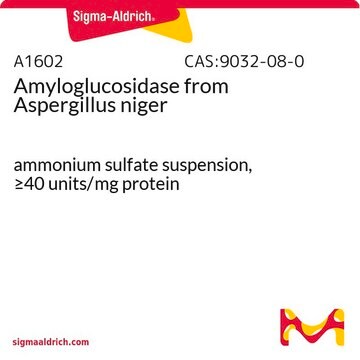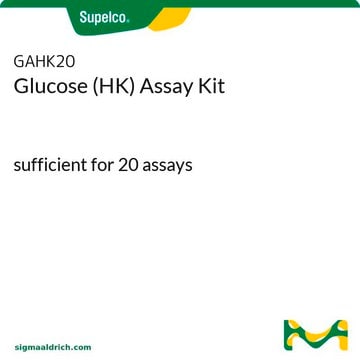ROAMYGL
Roche
Amyloglucosidase
from Aspergillus niger
Sinónimos:
Glucoamylase, disaccharidase-type-α-D-glucosidase
About This Item
Productos recomendados
biological source
Aspergillus niger
Quality Level
form
suspension
specific activity
~14 units/mg protein (At 25 °C with glycogen as the substrate; standardized with BSA.)
mol wt
Mr 97 kDa
packaging
pkg of 10 mL (10102857001 [100 mg])
manufacturer/tradename
Roche
parameter
55 °C optimum reaction temp.
optimum pH
4.6-4.8
storage temp.
2-8°C
Categorías relacionadas
General description
Specificity
Heat inactivation: Heat inactivation is recommended at 80 °C for 45 minutes, followed by rapidly cooling down.
Application
Biochem/physiol Actions
Unit Definition
Physical form
Other Notes
Storage Class
12 - Non Combustible Liquids
wgk_germany
WGK 1
flash_point_f
does not flash
flash_point_c
does not flash
Certificados de análisis (COA)
Busque Certificados de análisis (COA) introduciendo el número de lote del producto. Los números de lote se encuentran en la etiqueta del producto después de las palabras «Lot» o «Batch»
¿Ya tiene este producto?
Encuentre la documentación para los productos que ha comprado recientemente en la Biblioteca de documentos.
Los clientes también vieron
Nuestro equipo de científicos tiene experiencia en todas las áreas de investigación: Ciencias de la vida, Ciencia de los materiales, Síntesis química, Cromatografía, Analítica y muchas otras.
Póngase en contacto con el Servicio técnico









